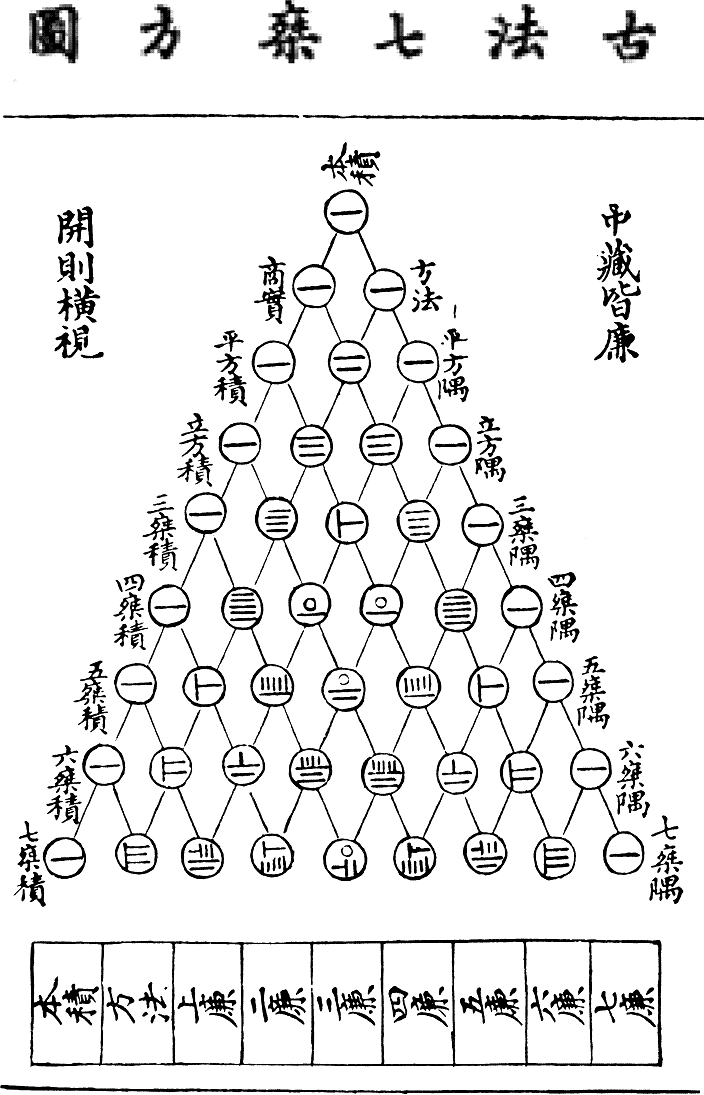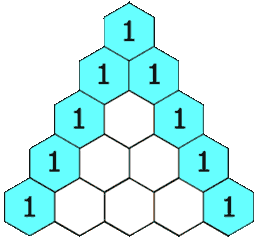So, there I'm going to talk about the Triangle Tartaglia.
- The triangle Tartaglia combinatorial numbers or Pascal (because it was the mathematician who popularized it) is a triangle of integers, infinite and symmetric.
- Pascal's triangle Tartaglia will be very useful for calculating the Newton's binomial coefecientes. (Formula which provides development nth power of n -n being positive integer- of a binomial.)
- It is associated with the name of the mathematician Pascal because he wrote the first treatise of the triangle and Tartaglia because the italian, was the first who published it in Europe.
- The properties of this triangle were known many years before Pascal formulate, by chinese, indian, persian mathematicians ... but it was he who organized all the information together.
For example, in China there isn't Pascal's triangle, there is Yang Hui's triangle. (You can see it at the picture below.)
- The construction of the Tartaglia triangle is like that and following:
- Some numbers, such as - 1 2 1 - y - 1 3 3 1 - are the coefficients of the identities below:
(a + b)2 = a2 + 2 · a · b + b2
(a + b)3 = a3 + 3 · a2 · b + 3 · a · b2 + b3




